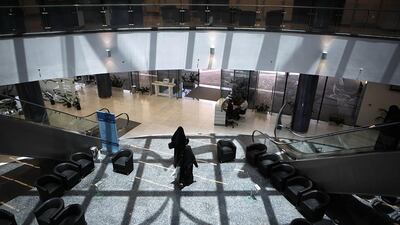The UAE is the flag-bearer of building sustainability within the region, with some of the highest rates of accredited green buildings in the world, according to a new report by Core Savills.
The property consultancy’s Green Report said that the UAE ranks among the top 10 countries in the world to hold Leadership in Energy and Environment Design (Leed) certificates outside the US, while Dubai ranks third among global cities with the highest number of green-certified buildings (behind London in first position, and New York in second).
The study states that most of these sustainable buildings are commercial properties rather than residential, but despite the investment green buildings typically do not attract higher rents. It said that this can be explained by the fact that “new developments are launching their initial phases at an attractive entry price point, in an effort to achieve critical mass and pave the way for future phases, where higher rentals may be justifiable”.
It also said that green buildings also compete with centrally located Grade A stock, and while some corporate occupiers value sustainability, most renters have yet to quantify the environmental and operational benefits of being based in a green building.
Moreover, in the residential market, spending money on retrofitting does not achieve the same returns when putting a property on the market as upgrading kitchens or bathrooms, it says. Properties that are more than a few years old benefit more from basic upgrades to facilities than retrofitting, with owners who invest in sustainable technologies running the risk of reaching a point “where the more they spend on upgrading their unit, the less additional return [rent or price] it will incur,” said Core Savills’ chief executive, David Godchaux.
Speaking at a recent sustainability roundtable event at Curtin University in Dubai Academic City, Daniel Adkins, the chief executive of Global Institute Middle East, said: “In the UAE, I don’t see a lot of drive from the end users demanding sustainable buildings.
“They’re happy to move into these glass boxes, they’re happy to live in places where you’ve got to run your air conditioning 24/7 to keep a relatively nice climate.”
He said that an education campaign was needed to get end users to demand more sustainable buildings. Without this, he argued, developers have little incentive to build them.
“The people who are commissioning and building the buildings are then immediately selling them off so they don’t have to pay for the long term.”
He argued that many apartment buyers either quickly sell on investments for capital gain or rent them out, and in either case are not responsible for paying utility bills.
“The only way we are going to get something that works here is if the government mandates that people pay for those externalities. So if they know that it is not energy efficient, then there is an increased cost that has to be paid back to the government as recompense,” Mr Adkins said.
“Because people in the UAE, like everywhere in the world, vote with their wallets and they are not going to spend extra money for some concept that doesn’t really matter to them because they are not looking 20 years down the road. They may not even be here 20 years down the road.”
mfahy@thenational.ae
Follow The National's Business section on Twitter


